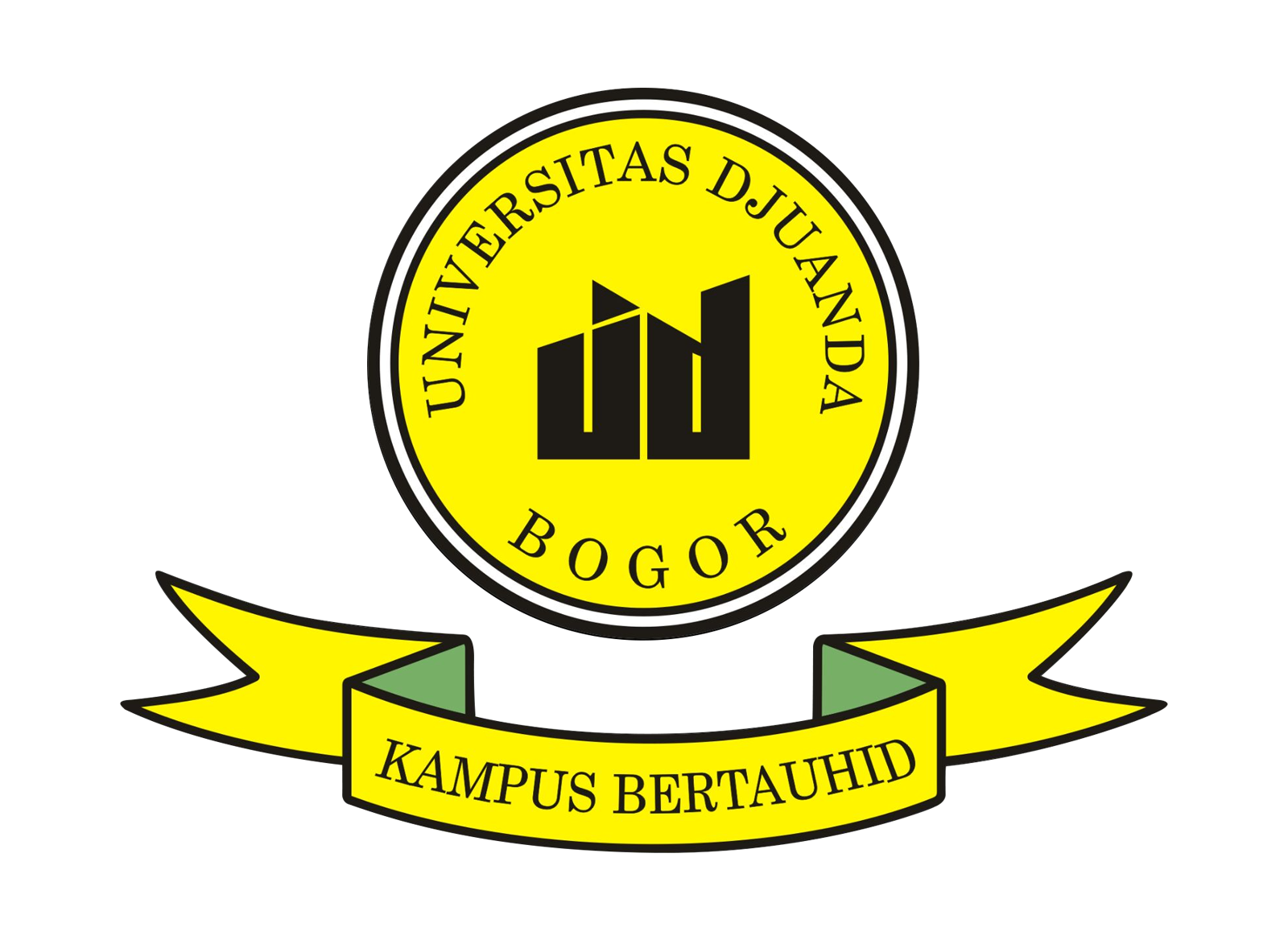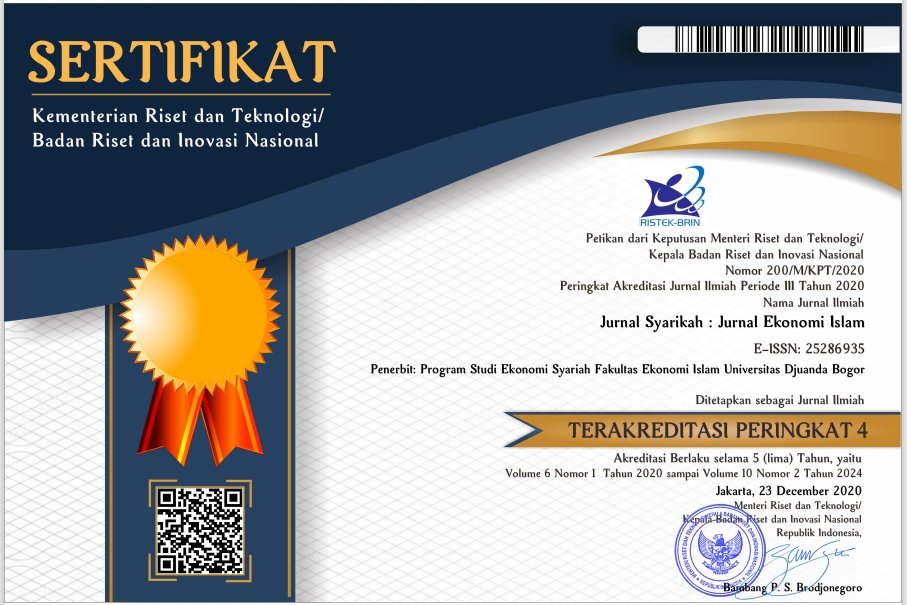POLITICAL STABILITY, MACRO ECONOMICS, AND ISLAMIC HUMAN DEVELOPMENT INDEX (I-HDI) IN OIC COUNTRIES
DOI:
https://doi.org/10.30997/jsei.v8i2.6996Keywords:
Islamic Human Development Index (I-HDI), Foreign Direct Investment, Remittances, Unemployment, Political StabilityAbstract
The human development index set by UNDP seems to be no longer compatible and sufficient to measure development in Muslim countries because the Human Development Index is not based on an Islamic perspective, it is unable to capture the religious and ethical perspectives of socio-economic development. For this reason, a development called the Islamic Human Development Index emerged as a more complex human development index because it was derived from the five dimensions of maqāṣid syarī’ah, namely: religion (din), life (nafs), reason (aql), family (nasl), and wealth (mall). As the main reference (I-HDI), this study tries to explore the relationship between political stability, foreign direct investment, remittances, and unemployment, on the Islamic Human Development Index in Muslim countries in the world. The methodology used in this study is multiple linear regression with the Generalized Method of Moments (GMM) model and the assistance of Moderated Regression Analysis (MRA). The results of the study indicate that investments made by foreign countries to the world's Islamic countries have a positive influence on Islamic human development. Likewise, remittances from overseas workers have a significant positive effect on the family's economy, so that their needs are met. However, unemployment continues to be a big problem for Islamic human development, this is evidenced by statistical values that show a significant negative direction. In addition, based on the moderated regression analysis, political stability is included as a pure moderator, meaning that the existence of political stability can fully interact (strengthen) the relationship between foreign direct investment, remittances, and unemployment on the Islamic Human Development Index.
References
Ali, F. (2020). Measurement Method for Islamic Human Development Index. Journal of Economics and Finance (IOSR-JEF), 11(6), 1–7. https://doi.org/10.9790/5933-1106010107
Astuty, F., & Siregar, I. N. P. (2018). Analisis Produk Domestik Bruto, Infrastruktur, Nilai Tukar Dan Tingkat Suku Bunga Terhadap Investasi Asing Langsung Di Indonesia. Jkbm (Jurnal Konsep Bisnis Dan Manajemen), 5(1), 91. https://doi.org/10.31289/jkbm.v5i1.1875
Baklouti, N., & Boujelbene, Y. (2020). An econometric study of the role of the political stability on the relationship between democracy and economic growth. Panoeconomicus, 67(2), 187–206. https://doi.org/10.2298/PAN170308015B
Basit, A., & Haryono, S. (2021). Analisis Pengaruh Stabilitas Politik Dan Faktor Ekonomi Terhadap Indeks Harga Saham Gabungan. Jurnal Aplikasi Akuntansi, 5(2), 220–237. https://doi.org/10.29303/jaa.v5i2.96
Commer, P. J., Sci, S., Journal, P., Ahmad, Z., & Saleem, A. (2014). Impact of Governance on Human Development. Commerce and Social Sciences, 8(3), 612–628.
Giuliano, P., & Ruiz-Arranz, M. (2009). Remittances, financial development, and growth. Journal of Development Economics, 90(1), 144–152. https://doi.org/10.1016/j.jdeveco.2008.10.005
Hamidah, C. (2013). Dampak Remitansi Tenaga Kerja Indonesia (TKI) Luar Negeri Pada Peningkatan Investasi Daerah Asal. Jurnal Ekuilibrium, Volume 11, Nomor 2, Maret 2013. Jurnal Ekuilibrium, 11(2), 1–14.
Huda, M., Haryadi, I., Susilo, A., Fajaruddin, A., & Indra, F. (2020). Conceptualizing Waqf Insan on i-HDI (Islamic Human Development Index) Through Management Maqashid Syariah. 1–8. https://doi.org/10.4108/eai.13-2-2019.2286206
Hymer, S. H. (1965). The International Operations of National Firms : Study of Foreign Direct Investment. In The MIT Press. The MIT Press. https://doi.org/10.4324/9781315690506-18
Ihsan, A. (2021). Determinants of Economic Growth in Organization of Islamic Cooperation with Governance Index as a Moderating Variable. Journal of Economics, Finance And Management Studies, 04(08), 1394–1405. https://doi.org/10.47191/jefms/v4-i8-16
Irawan, E. (2022). the Effect of Unemployment, Economic Growth and Human Development Index on Poverty Levels in Sumbawa Regency in 2012-2021. International Journal of Economics, Business and Accounting Research (IJEBAR), 6(2), 950. https://doi.org/10.29040/ijebar.v6i2.5455
Kadir, S. (2019). Pengembangan Pengukuran Kinerja Dengan Pendekatan Maslahah Score Card. Ekonomi Dan Bisnis Islam, 3(2), 149–172. https://doi.org/10.30868/ad.v3i01.501
Kadir, S., Abdullah, M. W., & Kadir, A. (2019). Analisis Pengukuran Kinerja dengan Pendekatan Maslahah Scorecard. Jurnal Minds: Manajemen Ide Dan Inspirasi, 6(1), 53. https://doi.org/10.24252/minds.v6i1.8108
Kamalu, K., Wan Ibrahim, W. H. B., & Ahmad, A. U. (2022). The Effect of Remittance on Human Development in the Organization of Islamic Cooperation Member Countries: Evidence from DCCE and CS-ARDL. Iranian Journal of Management Studies, 15(2), 405–424. https://doi.org/10.22059/IJMS.2021.306100.674183
Kanbir, O. (2021). Islamic Development Index. Sosyoekonomi, June, 1923–1929. https://doi.org/10.17233/sosyoekonomi.2021.03.08
Khalil, I. (2021). Effect of Economic Growth, Human Development, and Governance Factors on Financial Inclusion; A Cross Country Comparative Analysis. SSRN Electronic Journal, 1–50. https://doi.org/10.2139/ssrn.3776321
Kounou, M. (2020). Impact of Foreign Direct Investment on Human Development Index in South Africa. International Finance and Banking, 7(1), 58. https://doi.org/10.5296/ifb.v7i1.15582
Mahadiansar, M., Setiawan, R., Darmawan, E., & Kurnianingsih, F. (2021). Realitas Perkembangan Investasi Asing Langsung di Indonesia Tahun 2019. Matra Pembaruan, 5(1), 65–75. https://doi.org/10.21787/mp.5.1.2021.65-75
Mohammed, U. (2022). Remittances, institutions and human development in Sub-Saharan Africa. Journal of Economics and Development, 24(2), 142–157. https://doi.org/10.1108/jed-03-2021-0041
Muhammad, S. R., & Cipta, A. N. (2020). Dampak Pengangguran Terhadap Tindakan Kriminal Ditinjau Dari Perspektif Konflik. Jurnal Kolaborasi Resolusi Konflik, 3(1), 51–64.
Putri, R. M., & Mintaroem, K. (2020). Determinan Islamic Human Development Index (Ihdi) Provinsi Jawa Timur Tahun 2001-2016. Jurnal Ekonomi Syariah Teori Dan Terapan, 6(7), 1410. https://doi.org/10.20473/vol6iss20197pp1410-1420
Rahim, Z. A., Sofyan, S., & Esya, L. (2022). HUMAN DEVELOPMENT INDEX ANALYSIS WITH ISLAMIC HUMAN DEVELOPMENT INDEX ( IHDI ) APPROACH IN DKI JAKARTA IN 2010-2019. Jurnal Ekonomi Trisakti, 2(1), 133–146.
Reza, M., Dharma, Y., & Juliansyah, H. (2018). The Effect of Islamic Human Development Index. Journal of Maliksussaleh Public Economics, 01(02), 35–43.
Rukiah, Nuruddin, A., & Siregar, S. (2019). Islamic Human Development Index di Indonesia (Suatu Pendekatan Maqhasid Syariah ). Istinbáth, 18(2), 307–327.
Rusman. (2021). Proceeding Seminar Nasional & Call For Papers DAMPAK PANDEMI COVID-19 TERHADAP ANGKA PENGANGGURAN DI INDONESIA. Proceeding Seminar Nasional Journal, 687–693.
Sari, W. N., & Satrianto, A. (2021). Jurnal Kajian Ekonomi dan Sosial. 3(September), 65–76.
Siregar, M. S. (2020). Influence of Remitance Appcetance On Proverty Alleviation In Indonesia. Ecoplan : Journal of Economics and Development Studies, 3(1), 48–54. https://doi.org/10.20527/ecoplan.v3i1.65
Sukmana, S. R. dan R. (2019). PENGARUH FAKTOR-FAKTOR MAKROEKONOMI TERHADAPISLAMIC HUMAN DEVELOPMENT INDEX (IHDI) DI INDONESIA TAHUN 2013-2017. Jurnal Ekonomi Syaroah Teori Dan Terapan, 6(4), 95–98.
Sumaryoto, S., Herawati, M., & Hapsari, A. T. (2020). Analysis of Changes in the Unemployment Rate as a Result of the Human Development Index in Indonesia (Case Study 2010-2019). Journal of Economics and Business, 3(4). https://doi.org/10.31014/aior.1992.03.04.301
Susanto, E., Rochaida, E., & Ulfah, Y. (2018). Pengaruh inflasi dan pendidikan terhadap pengangguran dan kemiskinan. Inovasi, 13(1), 19. https://doi.org/10.29264/jinv.v13i1.2435
Umar, A., Ahmad, F., Mobin, M. A., Economic, A. S., Halim, A., Noor, M., Bahrom, H., & Rahim, A. (2015). Between Sharia Maqasid Index and Human Development Index: Which One is Happier? Media Syariah, 17(1), 213.
Yakubu, Z., Loganathan, N., & Mursitama, T. N. (2020). and Economic Determinants of Real Economic. Energies.
Yusroni, N. (2021). Analisis Pengaruh Investasi Asing Langsung (Eropa, Amerika Serikat dan Tiongkok) terhadap Pertumbuhan Ekonomi dan Kesempatan Kerja di Indonesia. AKSES: Jurnal Ekonomi Dan Bisnis, 16(1), 76–83. https://doi.org/10.31942/akses.v16i1.4474
Yusuf, A. R. dan B. (2020). Construction of Islamic Human Development Index. JKAU: Islamic Econ, 33(1), 101–116. https://doi.org/10.4197/Islec
Zeravan Abdulmuhsen Asaad, & Bayar MohamedRasheed Marane. (2020). The Influence of Human Development, Institutional Quality and ISIS Emergence on Foreign Direct Investment in Iraq . Technium Social Sciences Journal, 10(August), 318–332. https://doi.org/10.47577/tssj.v10i1.1402
Downloads
Published
How to Cite
Issue
Section
License
Copyright (c) 2022 Jurnal Syarikah : Jurnal Ekonomi Islam

This work is licensed under a Creative Commons Attribution-ShareAlike 4.0 International License.
Authors who publish with Jurnal Syarikah: Jurnal Ekonomi Islam agree to the following terms:
- Authors retain copyright and grant the journal right of first publication with the work simultaneously licensed under a Creative Commons Attribution 4.0 International License that allows others to share the work with an acknowledgement of the work's authorship and initial publication in Jurnal Syarikah: Jurnal Ekonomi Islam.
- Authors are able to enter into separate, additional contractual arrangements for the non-exclusive distribution of the journal's published version of the work (e.g., post it to an institutional repository or publish it in a book), with an acknowledgement of its initial publication in Jurnal Syarikah: Jurnal Ekonomi Islam.
- Authors are permitted and encouraged to post their work online (e.g., in institutional repositories or on their website) prior to and during the submission process, as it can lead to productive exchanges, as well as earlier and greater citation of published work
SURAT PERNYATAAN PEMINDAHAN HAK CIPTA[1]
Yang bertanda tangan di bawah ini adalah penulis naskah yang berjudul:
yang diajukan untuk dipublikasikan pada Jurnal Syarikah : Jurnal Ekonomi Islam ISSN 2442-4420 menyatakan bahwa:
Kami bersedia memindahkan hak publikasi, distribusi, reproduksi, dan menjual naskah kamiyang berjudul tersebut di atas sebagai bagian dari Jurnal Syarikah kepada Dewan Redaksi Jurnal Syarikah : Jurnal Ekonomi Islam ISSN 2442-4420
Demikian surat pernyataan ini saya buat dengan sadar, penuh rasa tanggung jawab, dan tanpa paksaan dari pihak mana pun!
No | Nama Penulis (lengkap dengan gelar akademik) | Nama dan Alamat Institusi, email | Tanda Tangan | Tanggal |
1 |
|
|
|
|
2 |
|
|
|
|
3 |
|
|
|
|
4 |
|
|
|
|
5 |
|
|
|
|
[1] Dikirim ke Dewan Redaksi Jurnal Syarikah, Program Studi Ekonomi Islam Fakultas Ekonomi Islam Universitas Djuanda Bogor, Gedung B Lantai IV Jl Tol Ciawi No. 1 Kotak Pos 35 Ciawi Bogor 16720, difaksimilikan ke 02518240985, dan hasil scanning-nya diemailkan ke Jurnal.Syarikah@unida.ac.id


